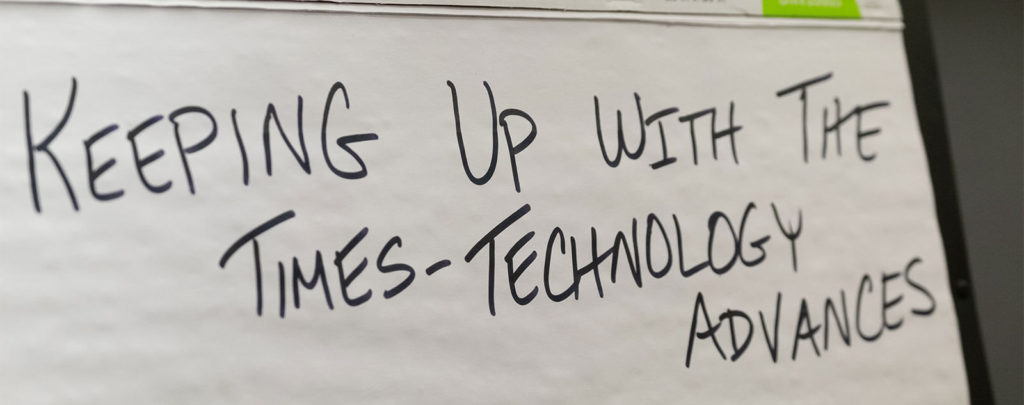Increased overdoses, many attributed to an influx of synthetic fentanyl, has put a spotlight on those who care for patients with opioid use disorders. Hundreds of prescribers are being targeted in an elaborate scam by imposters posing as DEA agents in an attempt to extort money. Over a series of phone calls, the imposters put their marks at ease, seeming to be on their side. By the time the imposters ask for money, many are willing to pay—just to make the issue go away. Scammers use the names of real DEA agents and alter their voices with artificial intelligence to make them sound as if they have regional accents that are convincing. The scammers are set up overseas.

When PCSS Clinical Expert Michelle Lofwall, MD, DFAPA, DFASAM, an addiction psychiatrist practicing in Kentucky, got a message from her office manager that the DEA called and wanted to speak with her, she was stunned when she returned the call. The DEA agent said a large cache of narcotics, with her National Provider Identifier (NPI), medical license number and DEA number, had been found in Texas and that she was being charged with drug trafficking. Her clinical manager Googled the “agent’s” name and verified that he was a DEA agent before passing along the message. The agent appeared to be legit, but what she was saying was alarming.
The agent at first asked many questions about whether she was in Texas, knew anyone in Texas, had lost any credit cards or phone. Dr. Lofwall was adamant this was not her and explained that NPI and DEA numbers are publicly available. The agent agreed, seemed to sympathize, and suggested someone was using her i.d. to obtain the drugs and that they see this often. She seemed concerned, not confrontational, and placed Dr. Lofwall on hold until another ‘special agent’ joined the call explaining that she was likely a victim of identity theft and that they would work to help clear her name. Dr. Lofwall Googled while talking to verify that this additional agent was also a real person working at DEA, and it checked out, too. However, Dr. Lofwall was still skeptical—and a little bit terrified. She realized if she were somehow tied to the illicit drug shipment and charges were pressed—even if she was later cleared—that her medical license could be in jeopardy at least temporarily.
She recalled a DEA visit over a decade ago when she was first prescribing buprenorphine, and while that visit ended harmoniously, it was stressful for her and the clinic.
The minute the call ended, Dr. Lofwall felt overwhelmed by the implications of what the agent had told her. Her first call was to her husband, who happens to be an attorney. After calming down and discussing the situation with him and then subsequently with her university’s attorney (Dr. Lofwall is a professor at the University of Kentucky), she realized this was a scam and was frustrated that she hadn’t figured it out sooner. And she wasn’t the only potential victim.
NPI numbers are public information, and anyone can obtain a provider’s DEA number by paying a small fee, so the fact the scammers had that information wasn’t a red flag. “It was very plausible to me that someone could have had that information,” Dr. Lofwall said. Still, something did not feel right. She had the person spell out his name, which he did patiently. She was then transferred to another agent. That one also appeared to be legit after a quick Google search.
Believing her identify had been compromised, Dr. Lofwall told the imposter agent that she intended to change her DEA number and medical license, but they immediately told her that was not necessary. That if she did, they would be unable to find the “mastermind” behind the identify theft. Their use of the word “mastermind” stood out to Dr. Lofwall as seeming off. This is when she became skeptical of them.
“If they would have said the only way for you to clear your name is to give us money, I would have hung up on them right away. But that’s not how it was. They were very sympathetic – didn’t ask for money, bank account numbers, or social security numbers.”
Dr. Lofwall recommends that if someone does call a practice claiming to be a DEA agent, hang up immediately, or simply don’t answer calls from numbers you do not know.
The scammers appear to be targeting professionals across several federal agencies, using similar tactics to extort money (read this NPR article).
While the DEA doesn’t have any specific information about this particular scam, they do have the following on its website:
“The Drug Enforcement Administration is warning the public of a widespread fraud scheme in which scammers impersonate DEA agents in an attempt to extort money or steal personal identifiable information.
DEA personnel will never contact members of the public or medical practitioners to demand money or any other form of payment, will never request personal or sensitive information, and will only notify people of a legitimate investigation or legal action in person or by official letter. In fact, no legitimate federal law enforcement officer will demand cash or gift cards from a member of the public. You should only give money, gift cards, personally identifiable information, including bank account information, to someone you know.
Anyone receiving a call from a person claiming to be with DEA should report the incident to the FBI at www.ic3.gov. The Federal Trade Commission provides recovery steps, shares information with more than 3,000 law enforcement agencies and takes reports at reportfraud.ftc.gov.
For any victims who have given personally identifiable information like a social security number to the caller, can learn how to protect against identity theft at www.identitytheft.gov.”

